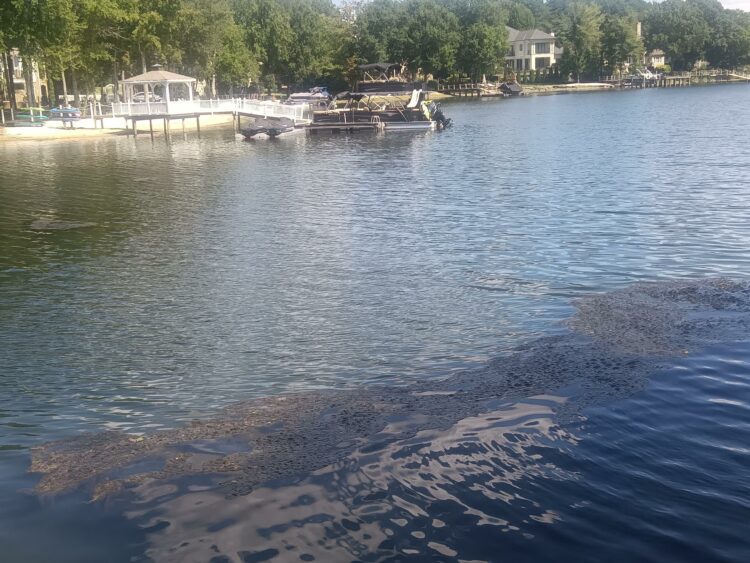
Growth in lake adjacent to the 18th hole at The Peninsula Club
Sept. 26. The algae that has formed a dense mat in coves on the Ramsey Creek side of Lake Norman is known as Lyngbya wollei.
“To date, there has been no evidence or reports of any detrimental human or animal health effects caused by Lyngbya. It is very unsightly and can form large, dense mats that will float on the surface and at times can emit a musty, earthy odor,” said Matthew Phillips, an environmental specialist with Charlotte-Mecklenburg Storm Water Services.
Bob Watson, who lives on a cove just north of the clubhouse at The Peninsula Club, spent several hours raking Lyngbya mats out of the lake to dry and kill it—although scientists say lyngbya can rejuvenate years later.
Open meeting

Bob Watson
Watson organized the meeting at on Lyngbya, which included former NC Sen. Jef Tarte, who recommended a regional approach to the problem. Attendees included officials from Storm Water Services, as well as officials from Duke Energy and a representative from US Sen. Thom Tillis’ office.
Task force
Watson, who has been politically active as an ordinary citizen, said he will organize a regional task force to address the lyngbya problem.
Cyanobacteria
Lyngbya, which has recently been reclassified and renamed Microseira wollei, is a cyanobacteria, or blue-green algae.
Quotable
“Since it is a cyanobacteria, it does have the capability to produce toxins, however, the types of toxins produced by Lyngbya are not well studied or known. Currently, the University of South Carolina is conducting a lot of research into learning more about the toxin capability of Lyngbya. ”
—Matthew Phillips, environmental specialist
Charlotte-Mecklenburg Storm Water Services




